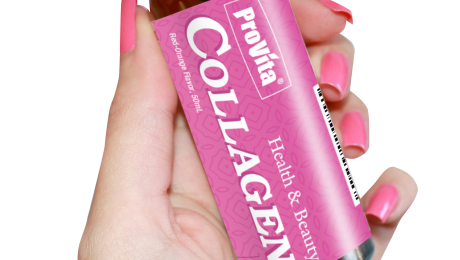As the skin generation goes through different stages, it get to appear with different changes such as pigmentation, fine lines, blackheads, dryness and many more. The release of collagen from the body could come as so many reasons such as sun exposure and the unhealthy routine along with improper appetite being followed by the individuals.
Activities like smoking, alcohol, lack of sleep can cause the skin to bring radical changes in the dermal layer of your skin.
How do it changes?
Reliably, dermas being the essential piece of skin, together with elastin and hyaluronic destructive, collagen have a key worker in giving decorum and adaptability to this organic part of our skin.
There are various significant methodologies that provoke the movements in developed skin, for instance, changes in the turnover of the extracellular cross section proteins inside the dermal layer of the skin, a rising in the red hot markers, and diminished circulatory system.
And then, hardly noticeable differences begin to show up when the breakdown of collagen inside the dermis outperforms its association.
What to do for overcoming this natural dilemma?
Now that we know that this key component of the human structure decreases over time, it makes sense that we need to supplement regularly with Collagen drink to support the ongoing prime function of the body’s developments controlled by collagen.
Before we get to supplementary products, there is one myth we should go over first.
MYTH ABOUT COLLAGEN
Many people mistake collagen for gelatin. Let’s set the record straight on the difference between the two. Collagen, as you have learned above, is a short-chain amino acid that is insoluble and makes up many parts of the human body. We also know that, today, few people actually eat those parts.
When you cook these parts, gelatin is released. You can think of gelatin as cooked, heated, or broken-down collagen. Consider bone broth. Bone broth is the best example of the transformation of collagen into gelatin. Collagen and gelatin is essentially the same product with the same amino acid makeup, and they work in the body in a similar way. (Source)
Effectiveness of the skin through an experimental cross sectional research:
The research was conducted to find whether an oral collagen containing acclaimed natural ingredients and served as a great-tasting beverage, would be workable in enhancing skin properties.
The analysis was accomplished by the standards of International Good Clinical Practice.
About the methodology, a gathering of 18 postmenopausal ladies were requested to test the item, and the outcomes were contrasted with a comparable gathering of ladies taking replica treatment.
The outcomes demonstrate that a blend of hydrolyzed collagen and hyaluronic corrosive, together with different fixings, when expended orally for 9 weeks can essentially diminish the severity of wrinkles, though there was no huge decrease with replica treatment.
As a result, there was 8% decrease in wrinkle perceptiveness in the group who took the collagen for skin, which was observed to be huge (P = 0.037).
AUTHOR’S BIOGRAPHY
The article is jotted down by Rutaba Hashmi, who is working as a promotional and content writer in a software-based firm. Rutaba feel fascinated in writing promotional content for the brand awareness purposes and want to pursue her career in the accordance.
REFERENCES:
1- Borumand M, Sibilla S. Effects of a nutritional supplement containing collagen peptides on skin elasticity, hydration and wrinkles. J Med Nutr Nutraceut 2015; 4:47-53
2- Six Surprising Reasons You Should Be Taking Collagen Daily. Heather Denniston; February 21, 2017
Seventy percent of our skin is made from collagen. Within the skin, collagen is the main component of the dermis: the layer that gives our skin elasticity and flexibility. Beginning at age 21, our body’s production of new collagen begins to decline and existing collagen begins to break down. By the time we are around 60 years old, we have half as much collagen as we did at the age of twenty-one. In addition, collagen synthesis rates – our body’s ability to create new collagen – have dropped by 75%1. Exposure to UV rays throughout our lifetime furthers this depletion, which leads to wrinkles, dryness, and saggy skin. Research shows oral collagen protein supplementation can help aging by firming and hydrating skin and removing deep wrinkles. Additionally, collagen helps aging by protecting against UV-induced skin damage. Learn about all the collagen anti-aging benefits below.
Collagen increases skin elasticity and hydration
Many clinical trials have shown collagen protein supplementation increases skin elasticity and hydrates skin. In one trial, women aged 35 and over showed statistically significant improvement in skin elasticity and skin hydration among subjects given 2.5 or 5 g of collagen daily for 8 weeks 2. In another study among women ages 40 to 60, supplementation with collagen for eight weeks helped with anti-aging as it showed a 28% average increase in skin moisture levels, and 91% of subjects reported less dry skin after supplementation3.
Collagen suppresses UV-induced skin damage and photoaging
Research has found a positive effect of collagen peptide ingestion on reducing skin damage associated with sun exposure. Repeated UV exposure has been linked to aging effects on the skin, including wrinkle formation, decreased hydration, and decreased skin-collagen content. In a study measuring skin changes in subjects who were repeatedly exposed to UV damage for 6 weeks, the subjects who were given collagen peptides throughout the trial demonstrated fewer effects of sun damage compared to the control group4. Another study showed a 31% decrease in skin-collagen fragmentation after supplementation for 12 weeks3.
Collagen decreases wrinkle depth and volume
Another study measuring the effect of collagen intake on skin wrinkles showed a statistically significant reduction of eye wrinkle volume in comparison to the placebo group after 4 and 8 weeks of daily collagen intake5.
Collagen hides cellulite and eliminates stretch marks
By strengthening the dermis layer of our skin, collagen also plays an important role in hiding cellulite and removing stretch marks. Cellulite becomes more visible as our skin stretches, thins, and sags. By increasing skin-collagen expression and improving skin elasticity and thickness, collagen helps to generate stronger, thicker skin that eliminates stretch marks and hides fat beneath the skin.
Oral intake of collagen improves skin more than topical creams
While collagen is used in many skin creams and lotions, it unfortunately does not get absorbed by the skin when applied topically. Topical collagen usually contains full-length collagen protein molecules, which are too big to penetrate the skin. Oral collagen peptides are shorter-chain protein segments that are readily absorbed into the bloodstream and utilized by the skin. In order to reap the full benefits of collagen, it must be ingested in peptide form to promote synthesis of new collagen fibers in the skin. Research supports the direct relationship between oral collagen peptide ingestion and skin collagen content. In a study measuring the effect of collagen hydrolysate intake on expression of collagen in the skin, oral administration of collagen peptides for four weeks almost doubled the amount of collagen produced by skin fibroblasts6.
UV exposure causes collagen fragmentation
Collagen breakdown is a chronic part of our aging process – as our cells age, their ability to produce collagen diminishes. Scientists have determined that 50% of our collagen decline is due to this chronic aging, but another 30% of this loss is due to photoaging: breakdown of collagen by UV exposure. Scientists have linked UV exposure to an increase in collagen-degrading enzymes in our skin. Once collagen molecules have been fragmented, the ability of skin cells to synthesize new collagen slows, creating an irreversible decrease in collagen production and total collagen content over time1.
Collagen degradation may lead to skin cancer
Research suggests that degenerated or damaged collagen may play a significant role in the formation of precancerous and cancerous skin cells. Degeneration of skin collagen caused by skin diseases, UV radiation, and injury leads to the development of “pseudoelastic tissue,” which has been found to be a precursor to cancer7.
Review of Collagen Benefits for the Skin and Anti-aging
– Collagen increases skin hydration and elasticity
– Collagen helps to reduce skin damage caused by the sun, which is linked to aging effects, including wrinkles and reduced skin hydration
– Collagen supplementation can help to reduce wrinkle depth and volume
– Collagen supplementation helps to hide cellulite and strength marks by strengthening the dermis layer of our skin
– Oral collagen peptides are absorbed into the bloodstream, making them more effective than topical collagen skin creams that do not get absorbed by the skin
– UV exposure has been shown to cause photoaging, breakdown of collagen
– Damaged or degenerated collagen can play a role in the formation of precancerous or cancerous skin cells


